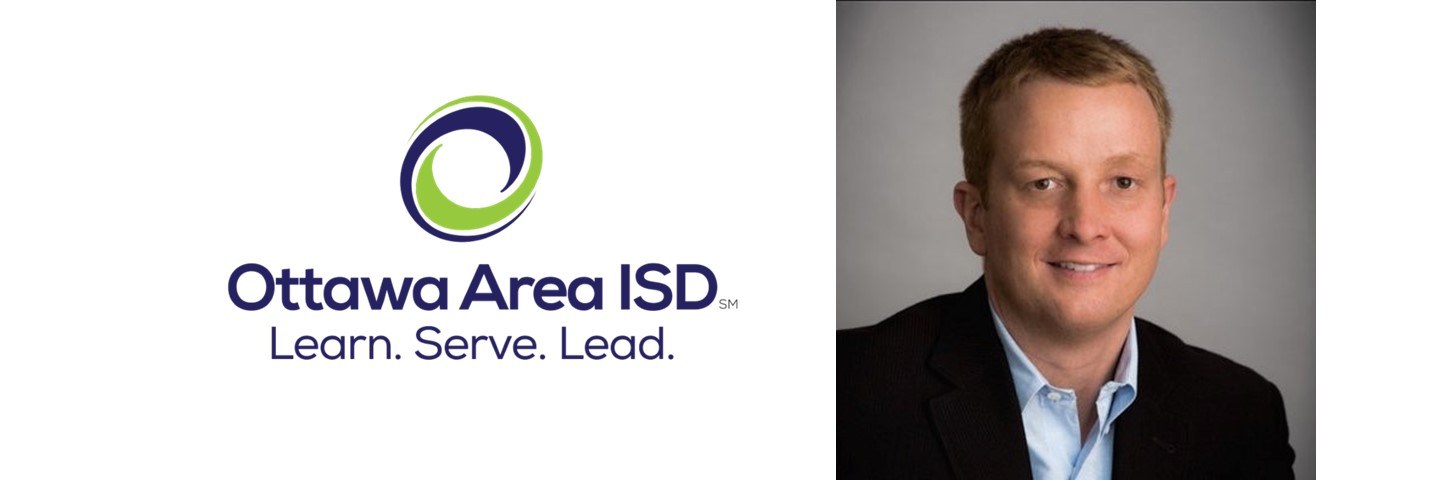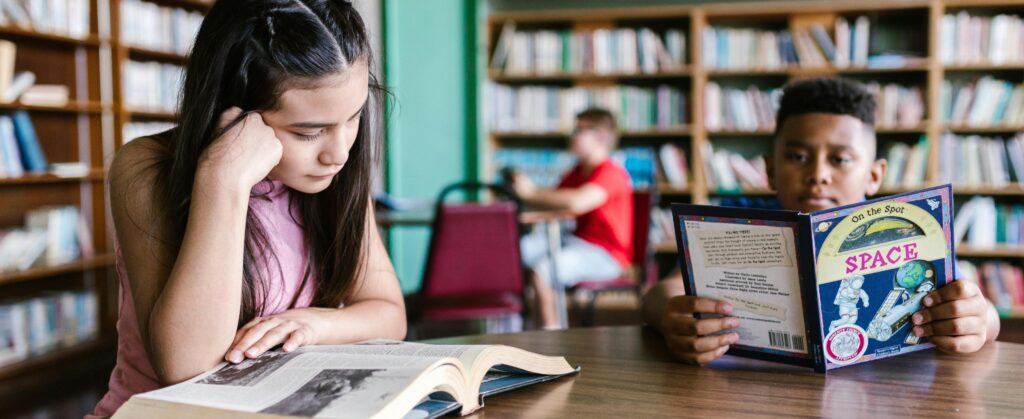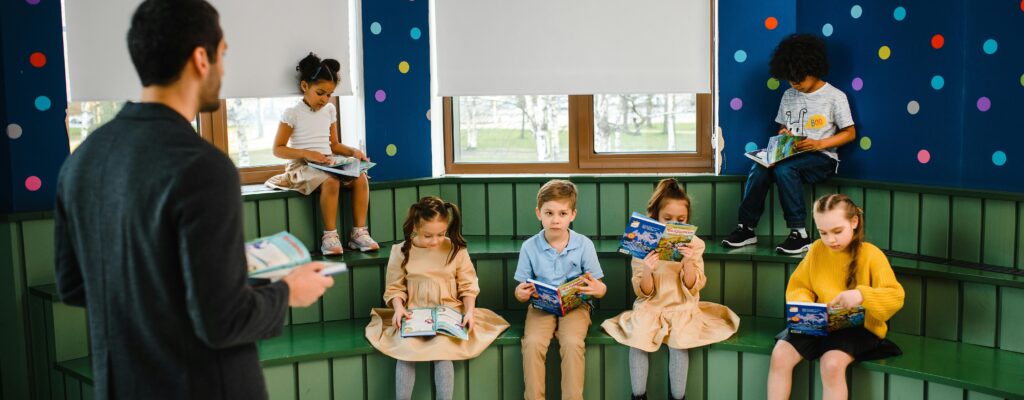
The Reading Now Network has been mentioned on Talent 2025’s blog before, as the organization is helping to improve literacy for West Michigan students.
Kyle Mayer is the Assistant Superintendent for Instructional Service at Ottawa Area ISD, and was part of the Reading Now Network’s Field Study Team. With the school year well underway, we talked to Kyle to find out more.
Talent 2025: What is the Reading Now Network?
Kyle Mayer: The Reading Now Network is a collaborative effort which began in 2013 of over 100 school districts in West and Southwest Michigan around a common goal of at least 80% reading and writing proficiency by 3rd grade.
Reading Now Network school districts span 20 counties. They share data, staff, strategies and supports in new and exciting ways. Activities of the network include professional learning opportunities for teachers and administrators, a classroom library initiative, principal coaching and “lab schools.” Teachers and administrators in lab schools voluntarily open their school and classroom doors to a process called “Instructional Rounds” which helps us to make customized improvement recommendations one school building at a time.
Talent 2025: What is your involvement with the Reading Now Network?
Kyle Mayer: Working with colleagues from other ISDs and local districts within the network, I help support the work described in the key activities above. Together, we plan professional learning opportunities, we help schools to implement classroom libraries, we arrange for principal coaching and lab school supports. Our Network is based on a “we not me” philosophy. The Reading Now Network is about what we are all doing together. Each day, someone from another ISD or local district has something amazing to share that they have done to further the work of the Network.
Talent 2025: You went into “outlier schools” to find out what they were doing right and how they were improving their students’ literacy. Why did you do this?
Kyle Mayer: Because we noticed, when looking at region-wide literacy data, that success was happening all around us in small pockets. We were curious about why some schools consistently outperform others who serve a similar demographic population. Why does Brown Elementary, in Byron Center, for example, consistently have far better literacy results than other schools whose community and student population look similar? How does North Godwin Elementary get strong results in literacy within their demographic group? We were genuinely curious.
Also, it was a positive way to look at things. So often, school “reform” efforts seem to operate on a premise that we need to “shame and blame” educators in order to motivate people and initiate change. We don’t agree with that. It hasn’t worked. We think studying success stories and then helping other schools to replicate that success is far more positive, inspirational, and effective in the improvement of schools.
Talent 2025: How can others learn from the Reading Now Network?
Kyle Mayer: I would encourage others to learn “with” us rather than “from” us. We don’t have all the answers and we haven’t yet solved the literacy issues that we are facing. Anyone who wants to get involved can give us a call, roll up their sleeves and help us to support the vast amount of work that it takes to lift literacy results across two regions of our state and to reach our goal of at least 80% proficiency for our students.
Talent 2025: Now that the Reading Now Network has identified early literacy methods that work, how have other schools responded?
Kyle Mayer: The response has been rather overwhelming. There is a noticeable increase in the sense of urgency held among educators to improve literacy achievement. Looking at literacy data while acknowledging the impact of poverty in our schools has helped all schools to recognize a need and an opportunity to improve. We have many schools volunteering to have regional and state literacy experts come into their schools and classrooms, to observe instruction and to provide constructive feedback. The sense of safety and trust that we have built has precipitated this culture of voluntary reflection and openness to feedback.
We approach the work in such a way that teachers are honored for their expertise and provided with a great deal of input and support to implement the strategies that will make the most sense within the specific context of the school in which they work. We like to say, “No teacher is harmed in this process” and we have held true to that. So, the response on the regional level is an increased willingness among educators to self-reflect and make a real commitment to improvement. We believe that when educators have a shift in mindset from “compliance” with mandates to “ownership” of the profession and the results we are getting, good things happen for kids.
Talent 2025: What’s next for Reading Now Network?
Kyle Mayer: We’re going to sustain an uncompromising focus on the achievement of our goal. We are going to continue to learn and grow, to try new things, and to expand the activities of our network to engage additional stakeholder groups such as parents, community members and business industry partners. Talent 2025 is developing a framework under which business partners will support our work. We have two federal grant applications pending that if successful will support us in accelerating and scaling up our work, in partnership with Western Michigan University.
We’re going to keep working together until we reach our goals, and beyond. We are optimistic that we will.
Learn more about Reading Now Network!
For further information, the following websites may be helpful:
The Reading Now Network also has a Twitter account that interested individuals can follow: @readingnownet.


